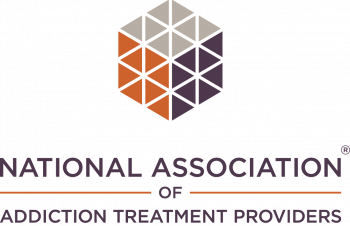September is National Suicide Prevention Month, a necessary observance due to the fact that this is one of the leading causes of death in the United States. If you or someone you know is experiencing suicidal ideation or talking about suicide, it’s essential that you take the situation seriously. You should then seek help as soon as possible. TruHealing Gaithersburg offers mental health treatment programs for those in need. Reach out today at (833) 625-0398 to speak with a trained representative who can discuss the right services for your needs.
Spread Awareness This National Suicide Prevention Month
There is an average of more than 100 suicides each day in this country. It’s the tenth leading cause of death in America, second-leading for ages 25-34, and third-leading for ages 15-24. To create awareness and strengthen the fight against suicide, the entire month of September is Suicide Prevention Month. Participate in the battle by getting involved with local organizations and listening to those who need help.
Consider posting on social media using relevant hashtags to promote awareness and to engage in a positive discussion about mental health concerns. Social media provides individuals with a platform to tell their personal experiences with mental health, addiction, and other issues. Sharing these stories may be helpful to those who can benefit from relatable stories.
Hearing others have made it through a challenging experience that sounds similar to your own can help make the journey to the other side feel less lonely and reduce feelings of hopelessness.
How You Can Encourage Treatment
People fighting depression may not want to acknowledge that they are depressed. It’s possible they may not be aware of the signs and symptoms of depression, so they may believe their thoughts and feelings are normal.
Too often, people feel a deep sense of shame about their depression and mistakenly believe they should overcome it with willpower alone. But depression seldom gets better without treatment and, unfortunately, may get worse. By choosing an appropriate treatment approach, someone you care about will have the chance to get better.
Here are a few ways you may be able to help:
- Talk to your friend, loved one, or colleague about why you are concerned
- Express that you are not judging and that you understand this is not a sign of weakness
- Say that research shows treatment can help
- Suggest seeking help from a professional
- You can offer to help prepare a list of questions or concerns for the appointment
- Express your willingness to help set up the appointment or attend
- If the situation appears severe or life-threatening, it’s essential that you take immediate action
If someone is suffering from a mental health condition, such as depression, seeking treatment is critical.
Warning Signs that Someone Is Thinking About Suicide
Stay alert for warning signs of suicidal thinking. If someone you care about is making statements about taking their own life, it should always be taken seriously.
Other signs that someone is seriously considering self-harm include:
- Engaging in risky or self-destructive behavior
- Increased use of alcohol or other substances
- Becoming more isolated
- Erratic mood swings
- Changes in personality
- Preoccupation with death, dying, or violence
- Getting the means to attempt suicide, such as buying a gun or stockpiling pills
- Expressing feelings of hopelessness
- Changes in routine such as eating or sleeping patterns
- Giving away belongings or seemingly getting affairs in order
- Saying goodbye to people as if they will not be seen again
If you suspect your loved one is considering suicide, it’s vital to contact emergency services right away.
Contact TruHealing Gaithersburg Today To Learn More
Keep in mind there is only so much you can do on your own. That is why highly trained professionals are available to help manage mental health challenges, including suicide risk.
For more information about managing mental health or suicide prevention, reach out to TruHealing Gaithersburg at (833) 625-0398 to speak with a trained representative who can help educate you about treatment and services for those in need.









